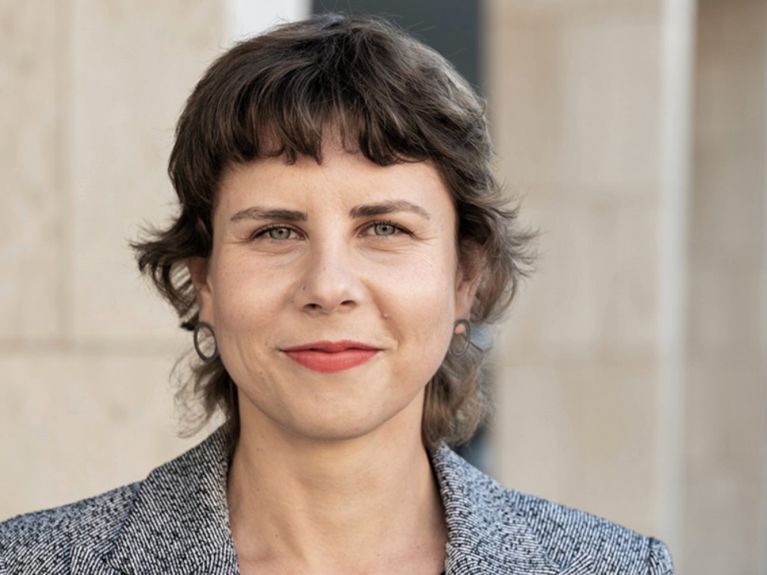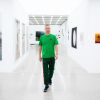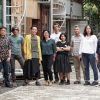“A young woman from eastern Germany”
Ifa Secretary General Gitte Zschoch talks about her start at ifa (Institut für Auslandsbeziehungen), European culture and digital formats.

Gitte Zschoch has been Secretary General of ifa (Institut für Auslandsbeziehungen) since October 2021. The body, which is funded by the Federal Foreign Office, among others, works from Germany as an intermediary organisation supporting international artistic and cultural exchange. Zschoch previously worked for the Goethe-Institut in various countries and was most recently Director of the European Union National Institutes for Culture (EUNIC), the network of European organisations engaging in cultural relations. Here you can read what she says about her new job, European cooperation and the opportunities offered by virtual cultural exchange.
Ms Zschoch, how would you sum up your first few months as ifa Secretary General?
I enjoy the work, and every day I’m pleased about what is possible in and with ifa. The reaction to my appointment was gratifying: an institution of international cultural relations that was founded by the last King of Württemberg and had a man at the reins for over 100 years was now led by me – a young woman from eastern Germany. That sends out a strong signal, which received a very positive response. It has naturally also been linked with certain expectations – not only with regard to innovation at ifa in general, but also specifically concerning greater diversity, increased topicality, digital content, greater transcultural competence and greater participation in our organisation and its work.
Does your view of German and European art and culture change when you’ve lived and worked in Asia and Africa for as long as you have?
Definitely. First of all, in a purely geographical respect: you notice how Eurocentric your own view of the world really is – despite all your education, all the political reading and all the consciously practised openness. What do we perceive as the centre and what as the periphery? Where, as a result of these perceptions, do we unconsciously become carriers of precisely the imperialist and racist models that we consciously resist?
As we know, art is a mirror of society and a space for continuously defining, questioning as well as negotiating and coming to terms with identities – identities that no longer stop at national frontiers, as is currently demonstrated with particular severity with regard to the issue of colonialism.
This very subject, which is present not only in the art of the countries and people affected by German colonisation but increasingly also in artistic works from Germany, cannot be fully understood solely from the local perspective. This is especially the case since we regard it as part of our job to convey knowledge of the world to Germany. The principles of co-production and co-curation, the involvement of curators and artists from the affected communities as equal partners, are indispensable here. One example of this is the Untie to Tie exhibition series at the ifa Gallery Berlin, which focuses not only on reappraising colonial continuities, but also makes traces of colonial thinking in schoolbooks and teaching materials visible in the publication Untie to Tie – Colonial Fragments in the School Context.
Before your move to ifa you were Director of EUNIC, the network of European cultural relations organisations in Brussels. How important is cooperation in Europe for ifa?
Europe is a cross-sectional issue for ifa, but that is not the only reason we are dependent on close cooperation with our European neighbours and partners. As ifa we are a member of EUNIC, the network of European cultural relations institutes. That strengthens our work worldwide, and within this framework we are trying out new forms of cultural global partnership – as equals and with equal rights. Cooperation with the EU will become more important for ifa in the coming years.
This is demonstrated, among other things, by our integration and media programme area, which focuses on supporting the cultural work of German minorities in Central and Eastern Europe as well as in Southeastern Europe and the states of the CIS. This work makes a contribution to strengthening the communal coexistence of different European groups.
At ifa we traditionally regard German minorities as bridge builders between their countries and the Federal Republic. But they are more than this: minorities increasingly also act as seismographs of democracies; this applies to ethnic minorities in Germany just as much as it does to German minorities elsewhere.
Key areas of your work also include sustainability and digitalisation. Will international cultural exchange become more virtual?
That has already happened. Even before the pandemic, ifa had supplemented its projects and programmes with various digital formats. Since 2020 numerous formats have been developed to create meaningful alternatives for programmes that were interrupted or reduced as a result of the coronavirus pandemic. These include, for example, digital exhibitions by our galleries, the virtual scholarships of the CrossCulture programme and virtual residences within the framework of our protection programmes. Experiences with them have been positive; they were perceived and accepted by the participants as far more than just emergency solutions. Many of these formats will therefore also continue alongside the resumption of analogue exchange offerings since they can complement them, ideally open up new forms of access and increase the reach of our work.
How important is it to continue travelling to other countries and experience other cultures at first-hand?
Nothing can replace direct interchange with people, live discussions, working together and shared experiences. They will continue to be a central element of international cultural relations. However, virtual offerings can create additional spaces that can multiply and consolidate the effect of personal encounters in a lasting way.
Link to the ifa (Institut für Auslandsbeziehungen) website


